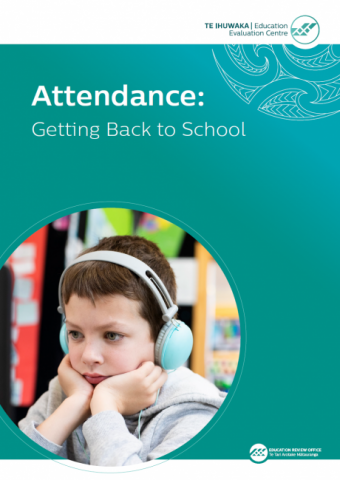Missing Out: Why Aren’t Our Children Going to School? - Summary
Published: 10 Nov 2022
Going to school is critical for our children’s futures. The evidence is clear that every day of school matters – missing school leads to lower achievement. Aotearoa New Zealand has lower attendance than other countries and, alarmingly, attendance is falling. This short summary looks at some of the reasons why.
- Audience:
- Academics
- Education
- Parents
- Schools
- Content type:
- Research
- Topics:
- Te Ihuwaka | Education Evaluation Centre



